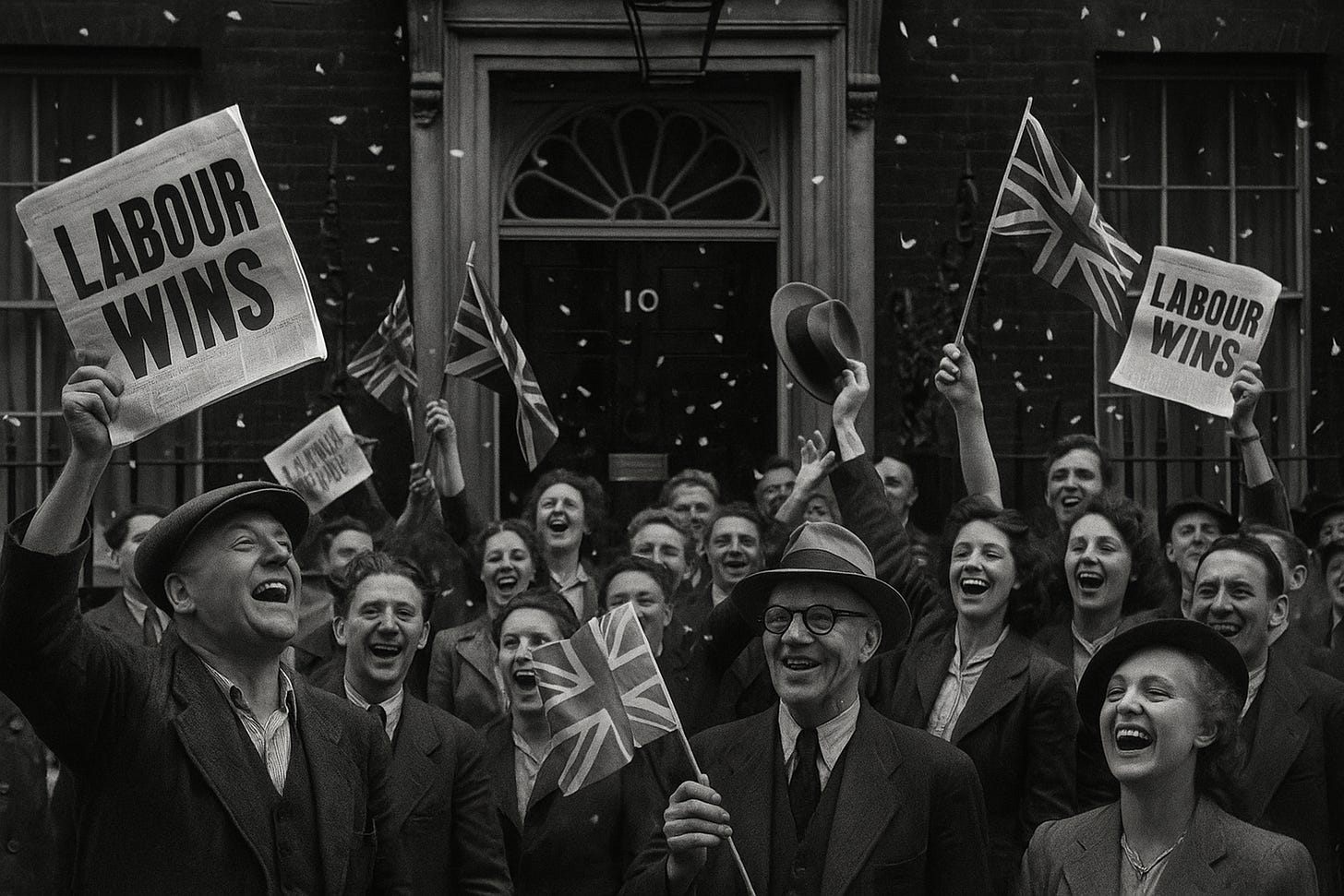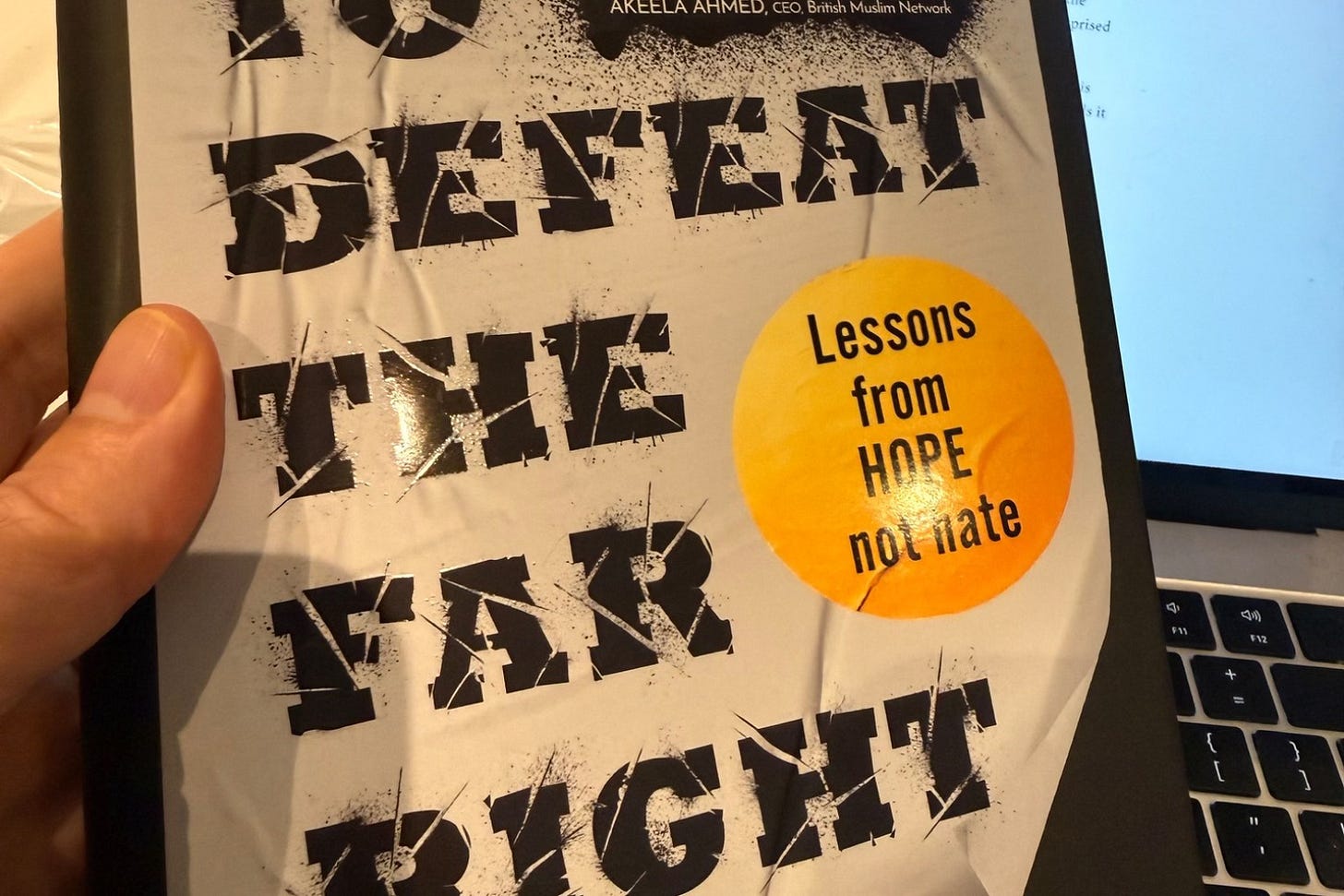A case for a progressive alliance
What Starmer is saying this week. We're heading for a 'Stop Farage' general election
Eighty years on from 1945, we honour a government that fought for social progress and won. Out of ruins, people fashioned a welfare state. Health care became a right, not a privilege. It was not gifted. It was wrestled from the clenched fist of privilege by ordinary men and women who believed tomorrow could be fairer than yesterday.
On the eve of his conference, Keir Starmer has named the foe. He tells the Guardian that history will not forgive us if we fail to fight Reform. There is an enemy. There is a project set against our country. He calls this an open fight with Reform, a battle for the soul of this country. That is a stark line to draw, and he has drawn it.
Why cast Reform as the adversary of progress? Because, at heart, Reform preaches brittle liberal economics. Think Hayek. The state is always the problem. Thatcherism was only the warm up. On society, they hide behind the front door. Brexit was the pinnacle of national isolation. Immigration is a threat. They’re no fans of devolution. They stand for Little Britain.
This framing carries an admission. First, Reform is a bigger threat to a progressive government than the Conservatives. Second, there are Reform supporters Labour is not likely to win back. This implies a simple truth: you need a progressive alliance in the country. Choose the coalition you need, then resist the temptation to chase voters you are unlikely to regain from Reform.
Ed Davey signalled as much last week, pitching his party as a bulwark against Faragism. The logic of today’s announcement suggests Starmer may be preparing to say it this week, in different words and with harder edges.
If that is the pitch, then hold the ground. Progressive voters are already the majority. They live in Labour, the Greens, the Liberal Democrats, Plaid Cymru and sometimes the SNP. They want climate action, more devolution, electoral reform and a stronger welfare state. They demand safety on the streets but not authoritarianism. They’re sceptical when they see politicians in the company of oligarchs and media moguls. They also tend to be the ones that make our culture; tread carefully around the creative industries. If you march to the drum of big corporates, do not be surprised when Elton John and Paul McCartney sing a different tune.
This is where the strategic detail matters. The government’s plan for digital ID is billed as modern statecraft and a practical answer to illegal working. Starmer calls it an enormous opportunity. Critics warn of overreach and risk. The question for progressives is simple: does this make a complex system work fairly for citizens, or does it borrow the language of Reform to curtail individual liberty? The test is delivery, privacy and trust, not political rhetoric.
A final thought on the coming contest. We are heading for a stop Farage election. If Reform defines the argument, it will be on terrain that belittles the state and popularises new threats. If Labour defines the argument, it should be on terrain that modernises the state, widens opportunity and encourages human flourishing in all its forms. Choose progress, then defend it.
Reading
How to defeat the far right by Nick Lowles. I’ll write a full review in the next few weeks but I think Labour Party members are going to need this in the years ahead!



I’m ’liking’ the words and not that weirdly manic ai generated photo.
Keep it real Tom ;-)
In the 1980s, the Conservatives fought the Argentinian fascists and won.
In the 2030s, Nigel Farage will make Britain like Argentina.
We already have a model for what happens when you adopt Farage policies.